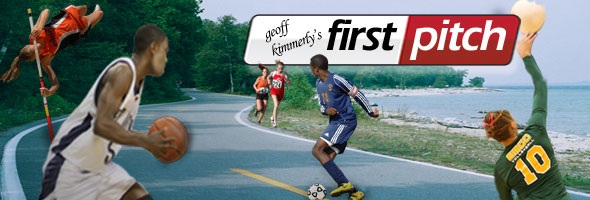
SAC Sound-off: The State of Sportsmanship
April 17, 2012
This week, we asked our MHSAA Student Advisory Council -- made up of athletes representing nearly every sport the MHSAA sponsors -- if they've seen more or less sportsmanship during their high school sports careers.
Here's what they told us:
Good news
“I’ve seen an increase, especially on our golf team because we’ve made that a priority on the team. Also, our school has made it a bigger focus.” – Kalamazoo Hackett junior Abby Radomsky
“An increase most definitely has been seen in the department of sportsmanship throughout my high school career. … Due to the rising levels of leadership and drive shown by students and coaches to display that life skills are taught through sports, not only the sport.” – New Buffalo senior Lena Madison
“I have seen an increase in sportsmanship because I think the whole idea of ‘Good sports are winners’ has had an impact on student athletes.” – Rogers City junior Evan Lamb
“I have seen an increase overall, especially in my area. I have tried to spread the ideas of positive sportsmanship throughout the U.P., and many people have made the change. It’s pretty awesome.” – Rudyard senior Tyler Wilson
“I have seen an increase in sportsmanship because the idea of being a good sport has been brought to the forefront of high school sports by the MHSAA and the SAC.” – Portland St. Patrick junior Elle Lehman
For some right reasons
“As my teammates have matured, I think we have learned more about how crucial having good sportsmanship is to the success of the team.” – Pontiac Notre Dame Prep junior Carly Joseph
“I have seen an increase in sportsmanship because I feel more and more kids are playing for the love of the game and not only to win.” – Muskegon Catholic Central senior Alissa Jones
As athletes grow up
“I have seen an increase throughout my time in high school, mostly because of the increased maturity level and understanding of what is right.” – Grand Blanc senior Bailey Truesdell
“I have seen an increase in sportsmanship. I believe this is because there is an increase in the level of maturity.” – Vandercook Lake junior Thye Fischman
Somewhere in the middle
“I haven’t really noticed a change either way. I have never come in contact with very poor sportsmanship, which is probably why it seems to stay the same.” – Walled Lake Central junior Taylor Krumm
“I haven’t noticed an increase or a decrease in high school sports. I think high school athletes act the same as when I entered high school.” – Travis Clous, Benzie Central senior
Something to consider
“I think a decrease because as students grow up and become more comfortable playing, I think they forget what they have been taught and feel as though they are entitled. I know student that think the older they are, the more they know; so they talk back to coaches and players.” – Maria Buczkowski, Detroit Country Day senior

Things change; lessons are the same
February 29, 2012
Let's start with the obvious: High school sports have evolved a bit since 1927.
But the MHSAA Bulletin from March of that year -- dug up by one of our directors on another research pursuit -- reminds us how some of our challenges remain the same.
Below are a few excerpts from the section titled "Baseball and Sportsmanship." Keep in mind, baseball was the football and basketball of the first half of the 1900s. The 1927 New York Yankees arguably were the greatest baseball team of all-time, finishing 110-44 thanks to Babe Ruth, Lou Gehrig and others.
Those names alone make us think in a historical context -- which makes the parallel between today and the following that much more intriguing:
Baseball games furnish a difficult problem to schools in the matter of sportsmanship, spectator control and their education.
Many more people are familiar with the game of baseball and its rules than is true of either football or basketball. Consequently, they feel even more qualified to criticize.
In many places, absence of seating facilities bring the spectators into close proximity to players with the result that criticism of players and of the official and sometimes abusive remarks to the visiting team can occur. No school can hope to improve this situation by ignoring it.
The MHSAA Bulletin went on to cite suggestions for improvement that had been published by the Delaware association. Again, a sampling:
Treat the visiting team as guests, not as deadly enemies. Small youngsters often offend through ignorance. Educate them along this line.
Fair and impartial applause of good plays by either side should be encouraged in the student body, and the outside fans will soon fall in line.
"Razzing" or "riding" visiting players is poor sportsmanship.
Caution your boys to pay no attention to the "grandstand experts" who feel it their duty to offer suggestions as to the work of the team. They can sometimes do more harm in an hour than can be overcome in days of practice.
And a final note from the 1927 MHSAA on the subject:
An athletic contest properly staged and handled creates a favorable impression on the part of visitors toward your school and community. A game that deteriorates into a backyard squabble hurts not only the school and its executives, but the town as well.

